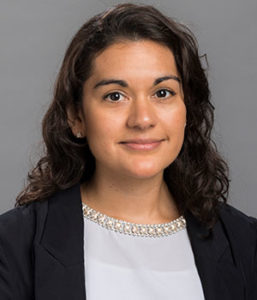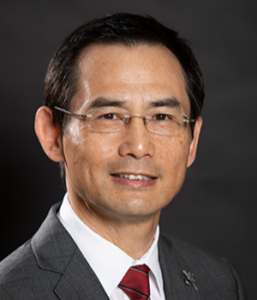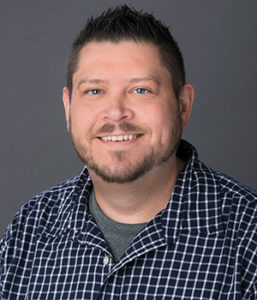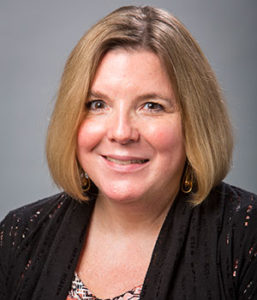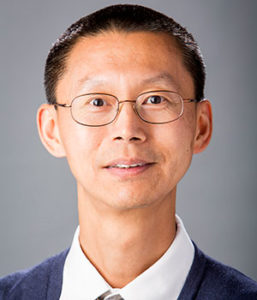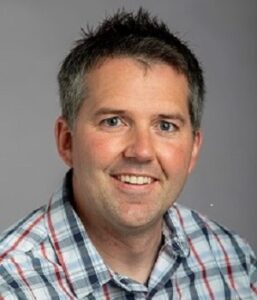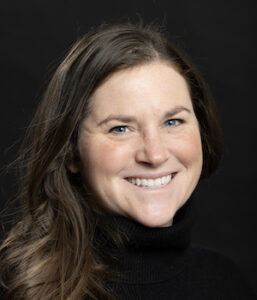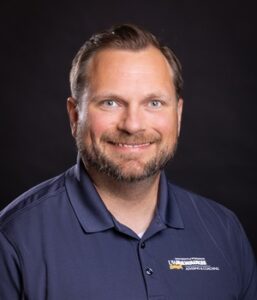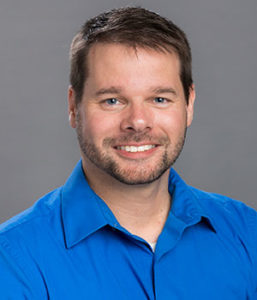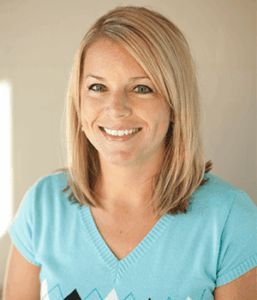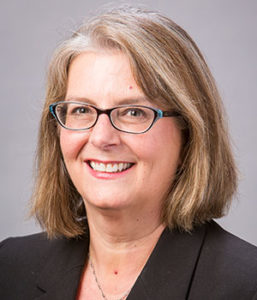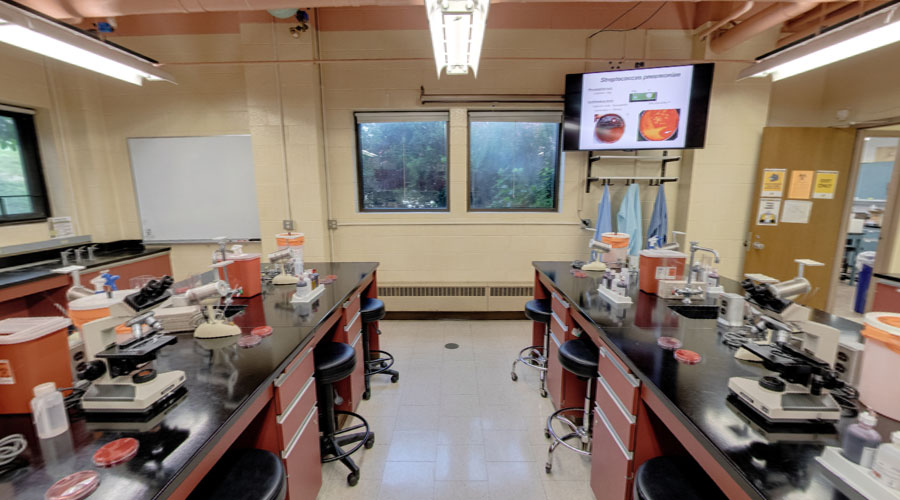Biomedical Sciences: Biomedical Science BS
The biomedical sciences submajor is an academic, non-clinical submajor that provides you with excellent preparation pursue careers in medicine, dentistry, veterinary science, optometry, pharmacy, chiropractic, research and other related fields requiring an advanced degree.
Program Type
Major
Program Format
On Campus
Biomedical Scientists…
As a biomedical scientist, you will utilize several different laboratory techniques to study clinical disease and treatment. Biomedical scientists can work in a variety of settings such as clinical, research and biotechnology laboratories.
Depending on the work environment, testing performed by biomedical scientists can aid in clinical diagnosis, provide a better understanding of human biology, provide better therapeutic strategies and much more.
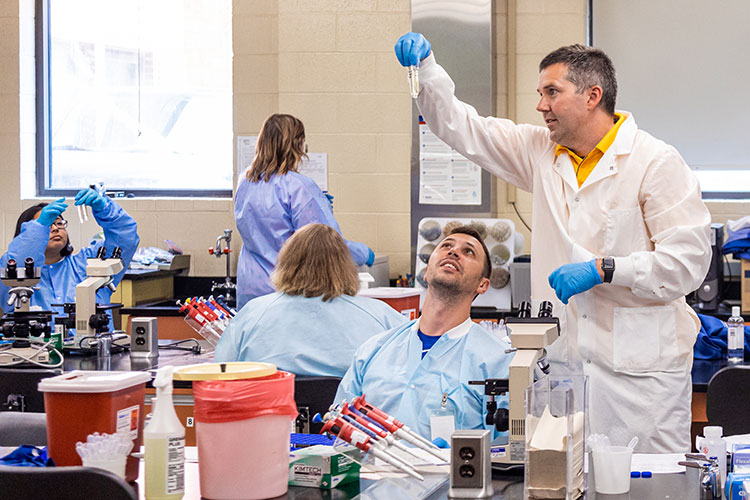
Medical tests are critical to the accurate detection, diagnosis and treatment of diseases, and so are the scientists who analyze and interpret those tests in the lab. If you enjoy science and its practical application, particularly in health care or related research, a degree in biomedical sciences could be for you.
With the BS Biomedical Sciences degree, you can be part of a wide variety of continually changing, dynamic professions, all with good long-term career prospects.
- You’ll gain a strong science background, professional management skills and technical expertise, all of which you can put to practice in our modern laboratory facilities.
- Our graduates quickly find employment upon graduation.
Employment Outlook
Learn more about career opportunities in laboratory science at laboratorysciencecareers.com.
Earnings
The median annual wage for medical and clinical laboratory technologists and technicians was $53,120 in May 2019. The lowest 10% earned less than $30,920, and the highest 10% earned more than $81,530.
In June 2019, the Wisconsin annual mean wage was $62,240.
Expected Growth
Employment of medical laboratory technologists is projected to grow 7 percent from 2019 to 2029, faster than the average for all occupations.
An increase in the aging population is expected to lead to a greater need to diagnose medical conditions, such as cancer or type 2 diabetes, through laboratory procedures.
Successful Alumni
The School of Biomedical Sciences & Health Care Administration has many successful alumni. These alumni have taken their degrees and have excelled in their careers.
Visit our Alumni page and be inspired by where a health sciences degree can take you.
Related Programs
Admission Criteria
The following requirements must be met before beginning the professional course (junior and senior level courses) of the biomedical science major:
- Completion of a minimum of 86 semester hours of coursework, including all required courses and UWM General Education Requirements
- An overall minimum UWM GPA of 2.5
- A minimum GPA of 2.5 in the specified science courses:
- Chemistry: 102, 104, 221, 341, 342, 501
- Biomedical Sciences: 202, 203, 325, 383
- Biomedical Sciences: 301-305, 427, 428
- A minimum grade of ‘C’ in all junior level science courses
Application Process
You must complete the following steps in the application process:
- Complete the application (PDF) and return it by Dec. 1 of your junior year to:
Department of Biomedical Sciences Program Office
College of Health Sciences
University of Wisconsin-Milwaukee
Enderis Hall, Room 411
Milwaukee, WI 53201 - Submit an autobiography, along with your application, describing yourself and your accomplishments. Text should be one-page, double-spaced on 8.5 x 11” paper and include:
- Your work experience, including any in health care
- Your reasons for choosing the biomedical sciences as your profession
- Your future goals
Review of Applicants
The College of Health Sciences Office of Student Affairs, together with the Department of Biomedical Sciences undergraduate program director, will review all application files for the biomedical science major in January to verify that the admission criteria have been satisfied and the files are complete.
Important Information
- You need to meet with your advisor to review transcripts and complete a degree audit to make sure that your academic records are in order.
- Limited employment during the summer semester is recommended.
- You are expected to register for classes at UWM at the beginning of the summer, fall and spring semesters of your senior year. University fees will be charged.
*You must achieve a minimum cumulative GPA of 2.500 in these required science courses.
**Strongly recommended but not required for graduation.
General Education Requirements (GERs)
| COURSE | GER | Credits |
|---|---|---|
| Social Science Select course from the approved GER Social Science list | GER-SS | 6 |
| Cultural Diversity Select course from approved GER list; Can be combined with Arts/Humanities | GER-CD | 3 |
| Arts Select course from the approved GER Arts list | GER-A | 3 |
| Humanities Select course from the approved GER Humanities list | GER-HU | 6 |
| Total Credits: | 18 |
Learn more about UWM’s General Education Requirements
Freshman Year
Fall Semester
| Course | Credits |
|---|---|
| BIO SCI 202: Anatomy & Physiology I* | 4 |
| BMS 101: Intro to Clinical Lab Science** | 2 |
| BMS 205: Intro to Diagnostic Medicine** | 3 |
| CHEM 102: General Chemistry* | 5 |
| GER Elective – Arts | 3 |
| Total Credits: | 17 |
Spring Semester
| Course | Credits |
|---|---|
| BIO SCI 203: Anatomy & Physiology II* | 4 |
| CHEM 104: General Chemistry & Qualitative Analysis* | 5 |
| GER Elective – Social Science | 3 |
| GER Elective – Humanities | 3 |
| Total Credits | 15 |
Sophomore Year
Fall Semester
| Course | Credits |
|---|---|
| BIO SCI 150: Foundations of Biological Science I* | 4 |
| BMS 301 & 302 & 303: Human Pathophysiology* | 3 |
| CHEM 341: Organic Chemistry Lecture* | 3 |
| CHEM 342: Organic Chemistry Lab* | 2 |
| GER Elective – Humanities | 3 |
| Total Credits: | 15 |
Spring Semester
| Course | Credits |
|---|---|
| BIO SCI 325: Genetics* | 4 |
| BMS 304 & 305: Human Pathophysiology* | 2 |
| HS 224: Computational Tools for Healthcare Professionals | 3 |
| KIN 270: Statistics in Health Sciences (QLB) | 3 |
| GER Elective – Social Science & Cultural Diversity | 3 |
| Total Credits: | 15 |
Junior Year
Fall Semester
| Course | Credits |
|---|---|
| BIO SCI 383: General Microbiology* | 4 |
| BMS 427: Clinical Immunology* | 3 |
| BMS 428: Clinical Immunology Lab* | 1 |
| CHEM 501: Biochemistry* | 3 |
| HCA 249: Writing for Professional Development in Health Administration (OWCB) | 3 |
| Total Credits: | 14 |
Spring Semester
| Course | Credits |
|---|---|
| BMS 420: Introduction to Hematology | 3 |
| BMS 421: Introduction to Hematology Lab | 1 |
| BMS 431: Clinical Chemistry | 3 |
| BMS 432: Clinical Chemistry Lab | 1 |
| BMS 534: Medical Microbiology | 3 |
| BMS 535: Medical Microbiology Lab | 2 |
| BMS 560: Molecular & Genetic Diagnostics | 2 |
| BMS 561: Molecular Diagnostics Lab | 1 |
| Total Credits: | 16 |
Senior Year
Fall Semester – Professional Training
| Course | Credits |
|---|---|
| BMS 523: Lectures in Advanced Hematology | 1 |
| BMS 547: Clinical Lab Diagnosis | 5 |
| BMS 555: Toxicology & Therapeutic Drug Monitoring | 1 |
| BMS 599: Advanced Independent Study | 3 |
| Electives | 6 |
| Total Credits: | 16 |
Spring Semester – Professional Training
| Course | Credits |
|---|---|
| BMS 531: Advanced Lectures in the Clinical Laboratory Sciences | 1 |
| BMS 549: Professional Development in Clinical Laboratory Sciences | 3 |
| BMS 599: Advanced Independent Study | 3 |
| Electives | 5 |
| Total Credits: | 12 |
To schedule an advising appointment, call 414-229-5047 or visit Cunningham Hall, Room 135.
You can also see the name of your advisor and contact them directly by accessing your student center in PAWS.
When should I meet with my advisor?
You are encouraged to meet with your advisor at least once per semester to ensure timely progress to graduation.
- Enrolling for spring semester?
Schedule an appointment with your advisor in October or November. - Enrolling for fall semester?
Schedule an appointment with your advisor in March or April.
You are also welcome to schedule an appointment with your advisor at any time to discuss academic challenges, career opportunities or any other questions.
How can my advisor help me?
The College of Health Professions & Sciences boasts professional academic advisors who understand the challenges of balancing academics, work, family and the social aspects of college life. Advisors partner with you to:
- Explore your academic and career interests
- Plan the sequence of your courses
- Prepare for course enrollment
- Access tutoring and other academic support
- Identify opportunities for campus involvement
- Connect you to campus resources
- Plan for graduation
- Clinical Associate Professor, Biomedical Sciences
- sawan@uwm.edu
- 414-251-9423
- Enderis Hall 479
- Clinical Associate Professor, Biomedical Sciences
- fcao@uwm.edu
- 414-229-6198
- Cunningham Hall 681
- Clinical Assistant Professor, Biomedical Sciences Undergraduate Laboratory Programs Clinical Education Coordinator, Biomedical Sciences
- bkdepons@uwm.edu
- 414-251-5861
- Enderis Hall B92
- Head of School, School of Biomedical Sciences & Health Care Administration
- Associate Dean for Academic Affairs
- Associate Professor, Biomedical Sciences
- dollj@uwm.edu
- 414-229-4840
- Enderis Hall 899
- Associate Professor, Biomedical Sciences
- Director, Wound Healing and Tissue Repair Analytics Laboratory
- sandeep@uwm.edu
- 414-229-2841
- Cunningham Hall 455
- Clinical Associate Professor, Biomedical Sciences
- houf@uwm.edu
- 414-251-7123
- Enderis Hall 465
- Clinical Associate Professor, Biomedical Sciences Undergraduate Laboratory Programs Director, Biomedical Sciences
- Senior Advisor, Office of Student Affairs
- muellew@uwm.edu
- 414-229-6448
- Cunningham Hall 135
- Associate Professor, Biomedical Sciences
- Executive Committee Chair
- nardelld@uwm.edu
- 414-251-9074
- Enderis Hall 493
- Clinical Professor, Director of Academic Initiatives and Planning, Biomedical Sciences, Office of the Dean
- sstalews@uwm.edu
- 414-229-5992
- Enderis Hall 819

